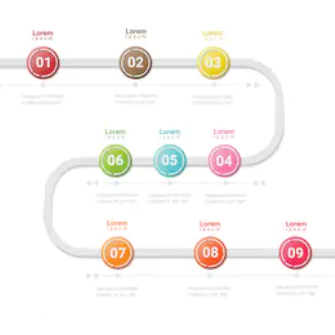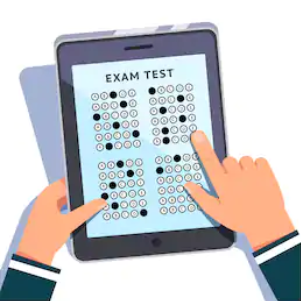FEATURED ARTICLE
When are the InstantCert Flashcards NOT enough?
The InstantCert flashcards are designed to be the only study materials you need to pass your CLEP*, DSST, and UExcel exams, and in fact, the majority of our students do successfully pass their exams using only the flashcards. With that being said, there are certain scenarios where you may want to consider supplementing the flashcards.
Check out the scenarios below, and if you feel like any of them apply to you, do not panic! All it means is that you will need to spend an extra day or two (at most) to prepare using our member-exclusive Specific Exam Feedback section, as discussed in our article, “How to Customize your CLEP Study Plan”.
Scenario 1: Difficult exam subject
Depending on your background, certain subjects may be more challenging for you. For example, if you have always struggled with math, you may have a harder time preparing for the College Algebra or Precalculus CLEP exams compared to other exams. If English is not your native language, you may struggle with understanding the nuances of passages you read in the Composition or Literature exams.
If you are going through our flashcards and find that you are struggling with some of the concepts, then you should probably do some additional studying outside of the flashcards on those topics that are giving you trouble. If, on the other hand, you make it through the flashcards and feel comfortable with everything in the questions and explanations, then go in and take the exam with confidence — you can rest assured that our flashcards cover what you need.
TIP: Just because you find a subject challenging, that does NOT automatically mean you MUST supplement our flashcards. It is all based on your comfort level. If you get through our flashcards and feel like you understood everything contained in them, you’re ready!
Scenario 2: Exam with low pass-rate
Not all exams are created equal. Some exams such as American Government do not cover necessarily complex topics but are trickier in their wording or quiz you on finer details. If you check our pass rate for a particular exam and see that it has a pass rate below 90%, depending on other factors such as your test-taking skills and background knowledge in the subject, you may consider doing a little studying beyond the flashcards.
TIP: The vast majority of InstantCert’s subjects have pass rates in the 90’s. It’s just a small handful of subjects such as American Government (88%), College Algebra (83%), Financial Accounting (84%), and Money and Banking (89%), that have a lower pass rate. That does not mean you should fear those exams. Just treat them with a bit more respect and use the full range of InstantCert resources to make sure you are 100% ready!
Scenario 3: You are a poor test-taker (or young)
As mentioned previously, we are not handing you a copy of the exam. For many questions, the correct answer will be obvious, but to get a passing score, you will in some cases be required to use your worldly knowledge and critical thinking skills to eliminate wrong answer choices and make an educated guess. If you have a poor track record with multiple-choice tests or are relatively young and inexperienced (e.g. a high school student or younger), you will probably want to “overstudy” for your exam.
TIP: Even if you consider yourself a good test-taker, check out our article, Test-Taking Strategies for CLEP and DSST Exams. Even getting one additional question right on the exam can mean the difference between passing and failing.
Scenario 4: Your school requires a high score on the exam
Whenever you take a CLEP or DSST exam, your score sheet should include the ACE-recommended passing score for that exam. For CLEP, that should be a score of 50 out of 80, and a 400 out of 500 for DSST. You should always check with an adviser at your school to see how high you need to score to get credit for the exam; they may have set a passing score that is higher than the ACE recommendation. If so, it is highly recommended that you supplement our flashcards with additional resources. Our flashcards are designed to get you over the line for a minimum passing score, but if you need anything higher, there are no guarantees.
TIP: I have seen schools require a score as high as a 65 (out of 80) on a CLEP exam. Due to the way the CLEP and DSST exam scoring system works, getting a 65 instead of a 50 is a completely different ball game, so you will definitely want to fill in any gaps in your knowledge of a subject before taking the exam.
And that’s it!
Let me just re-emphasize that for most students, our flashcards are the only resource they use and they successfully pass all of their exams. The scenarios in this article are presented in the interest of transparency, since no single resource out there is a perfect “one-size-fits-all” solution that works 100% of the time for all students and exam titles. Happy testing!
Ready to start studying?
InstantCert has been successfully used by hundreds of thousands of students over the years and that’s why we have the confidence to offer our Unconditional 30-Day Money Back Guarantee! Why wait? Sign up and start studying for your exam now!




